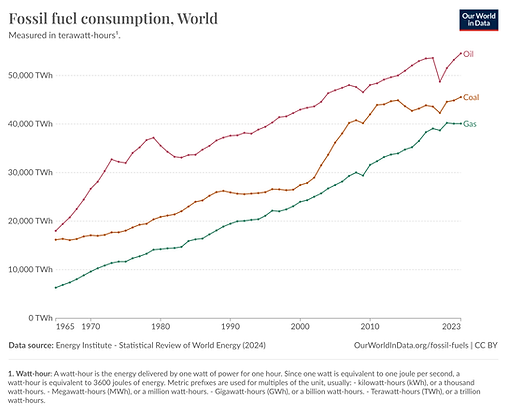
Local Curse
A million years ago, our human cousins burned wood - which produced campfire smoke.
Thousands of years ago, our ancestors began smelting metals, which created (as today) a variety of pollutants.
In the Bronze and Iron Ages weapons-makers burned charcoal, which caused a “depletion of forests."
Later “mining operations leached acids and toxic minerals, including mercury and arsenic, into nearby waters.
Waste products fouled the land and air. The smelting of lead in (150 b.c.) Rome produced clouds of toxic gas.”
With urbanization and the industrial revolution (250 yrs. ago), coal burning increased, and pollution greatly expanded.
Clean-air “laws were passed … but with little teeth.” Insignificant fines were levied.
"Coal remained cheap. No one was willing to slow the industrial engine."
Extreme pollution events in L.A. and London led to England’s Clean Air Act (1956), and the USA's Clean Air Act (1963).
These newer Clean Air Acts were also meager. As in olden times, economic players profit from pollution.
In the 20th century, the burning of oil and gasoline proliferated, resulting in ever more pollution.
_edited_edited_edited_edited_edited_edited.png)
.png)

https://ourworldindata.org/data-review-air-pollution-deaths
Pollution leads to another sequence of steps once inside the human body:
-
Inhalation of air (oxygen and invisible pollutants)
-
-
Absorption of these chemicals via the lungs (alveoli)
-
-
Transportation throughout the body (circulation)
-
-
Disease (and potential death)
“The most severe harm from air pollution isn't immediately noticeable.
Some of the worst impacts come from the tiny particles in smog, known as PM2.5."
"When you breathe them in, ‘they can go into your bloodstream ... and act as a toxin.’
[causing] 'strokes and heart attacks [&] cognitive decline and [problems] with fertility.'
‘It's hard to ... understand ... that someone's illness is ... exacerbated by pollution'."

"PM2.5 can penetrate deeply into the lung ... leading to impaired lung function."
“Air pollution’s harmful effects are amplified in children."
"Their lungs, brains, [etc.] are immature, and their immune systems are still developing.”

The American Lung Association makes a list of places with the most air pollution.
Bakersfield, California may have the worst.
Lahaina, Hawaii was near the top for the cleanest air - before the awful fire there.
------------------------------------------------------------------------------------------------
While American air had been improving,
effects of pollution are worse than realized:
“Air in Louisiana’s ‘Cancer Alley’ is likely more toxic than previously thought.”
Worse still, (as of 2024) U.S. air pollution is growing again, including:
“spikes in deadly particle pollution [and] days with ‘very unhealthy’ and ‘hazardous’ air”.
The reason appears to be smoke from an increasing number of (global-warming-attributed) wildfires.